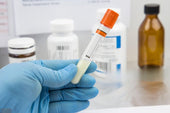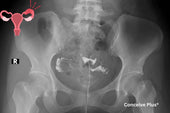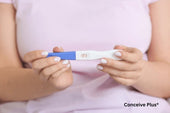Signs That Plan B Didnt Work: A Comprehensive Overview

Emergency contraception can help individuals avoid unintended pregnancy after a lapse in birth control or unprotected intercourse. Plan B contains levonorgestrel, which attempts to delay ovulation so sperm cannot meet an egg. Though it can work well if taken quickly, multiple factors may undermine its effectiveness. Body mass index, medication interactions, or timing can all raise questions about whether fertilization still happened. Stress also complicates matters, since some normal side effects overlap with early pregnancy signs. Understanding these elements, and knowing the signs that plan B didnt work, can lessen doubts. This article explores the core considerations and signals of potential Plan B failure.
Role of Timing
Timing is vital. For best results, experts advise taking Plan B within 72 hours of unprotected sex, ideally sooner. Levonorgestrel primarily stops egg release but may not block fertilization if ovulation has already occurred. Since menstrual cycles differ, ovulation tracking can help individuals better understand their fertile window, as a person nearing ovulation may have a narrower window for effective prevention. Delays also allow time for an egg to surface, diminishing the pill’s impact. If ingestion is delayed beyond recommended limits, users face heightened uncertainty. Acting rapidly, along with recognizing individual cycle nuances, optimizes the pill’s potential to avert pregnancy [1].
Possible Side Effects
Plan B can cause mild, short-lived reactions like nausea, dizziness, or fatigue. Breast tenderness and cramping may mimic pregnancy symptoms, creating anxiety. Spotting or earlier or later periods might happen, reflecting abrupt hormonal shifts. These effects, though unwelcome, do not by themselves confirm failure. Usually, they subside once the hormone surge tapers. Observing any prolonged or severe change can be prudent. Still, many people find that minor fluctuations in bleeding or mood resolve quickly. Being prepared for these temporary aftereffects helps differentiate normal responses from deeper concerns about an unsuccessful outcome.
Factors That Compromise Efficacy
Several variables can undermine effectiveness. Those with higher body weights sometimes absorb or metabolize levonorgestrel differently. Certain drugs, including some epilepsy medications, may speed hormone breakdown. Vomiting soon after ingestion likewise risks expelling the pill before absorption. Re-dosing is often recommended if that occurs within two hours. Confusion about proper instructions or splitting doses incorrectly can reduce potency as well. These circumstances highlight the importance of following guidelines and consulting a pharmacist or physician about possible drug conflicts. Careful attention to these points aids in maximizing Plan B’s chance of success [2].
Emotional Toll
Facing the question “Can Plan B fail?” can spark stress, magnified by social and personal worries. Heightened vigilance toward bodily changes might amplify normal twinges into major alarms. Anxiety disrupts daily life, complicating rational decisions about testing and follow-up. Though many find relief through negative results, the waiting period can be tense. Sharing concerns with a trusted friend or counselor often helps. Recognizing that Plan B is generally effective can temper worst-case fears. Nonetheless, seeking reassurance via medical professionals or mental health support can be integral to coping with this psychologically charged situation.
Indications of Potential Failure
Though delayed or early bleeding alone is usually benign, a missed period stretching beyond a week may signal pregnancy. Testing then becomes crucial. Ongoing severe pain could indicate complications, such as ectopic development, which demands urgent evaluation. Subtle symptoms like persistent nausea or breast soreness that intensify might also warrant caution. Because Plan B’s side effects typically wane, lingering or escalating discomfort could imply a different cause. If doubt lingers, an over-the-counter pregnancy test provides an initial screening. Confirming results through a medical consultation helps resolve uncertainties and fosters appropriate next steps [3].
Confusion with Pregnancy Indicators
Hormone-induced changes can resemble early pregnancy, including fatigue and mild queasiness. Stress can compound the dilemma, leaving individuals unsure whether they’re reacting to Plan B or showing actual gestational signs. Refraining from immediate interpretation is advisable, since human chorionic gonadotropin (hCG) typically must rise for two weeks before detection. Testing too soon can result in ambiguous data. If suspicion persists, repeating the test after a few days can clarify. Achieving a conclusive outcome avoids misinterpretation of short-term bodily responses. Thorough knowledge of one’s usual cycle can further differentiate normal fluctuations from potential pregnancy.
The Question of “Can You Still Get Pregnant After Taking Plan B?”
Yes. Because no contraceptive is foolproof, a small chance remains, especially if ovulation was imminent or new intercourse occurred soon afterward. The pill offers no lasting protection beyond its brief window. If sperm meet an egg later, fertilization remains feasible. Weight, medications, or vomiting can also diminish its potency. In these cases, verifying success or failure rests on monitoring menstrual changes and testing. Although Plan B can serve as a critical safeguard, it should never replace a consistent birth control method. Maintaining realistic expectations helps manage concerns about ongoing vulnerability.
Testing for Clarity
An over-the-counter urine test detects hCG only after it builds to a measurable threshold. Taking one too early invites confusion. Many choose to wait at least a week past a missed period for reliable results. If a test reads negative but uncertainty persists, repeating it a few days later may solidify clarity. Blood tests performed by a healthcare provider are more sensitive and can detect pregnancy sooner. For those who remain unsure, a physician may suggest blood analysis or ultrasound to confirm or exclude pregnancy. Prompt attention to suspicious symptoms fosters peace of mind [4].
Reassessing Long-Term Contraception
Repeated reliance on emergency pills can generate ongoing apprehension. After one stressful scare, individuals frequently explore more sustainable birth control. Options vary, from combined oral contraceptives to intrauterine devices or implants. Consulting a medical professional helps evaluate lifestyle factors, side effect profiles, and cost. When effectively used, standard contraceptives reduce the likelihood of repeated emergencies. Additionally, discussing condom use or dual protection helps prevent both pregnancy and certain infections. Planning ahead can eliminate the guesswork and anxiety often linked to emergency-only approaches, providing steadier coverage and heightened confidence over time.
Emotional Support and Coping
The immediate worry about unintended pregnancy may overshadow self-care. Feelings of shame or guilt sometimes block people from seeking help. Remember that clinicians regularly address concerns regarding emergency contraceptives, providing safe, respectful environments. Confiding in friends or a counselor offers relief from internalized stress, while online communities grant additional peer support. Nonetheless, professional guidance remains crucial for medically sound information. Recounting the sequence of events and symptoms can clarify next steps. Balancing emotional well-being with factual knowledge ensures a healthier approach to possible outcomes. Informed decisions reduce panic and promote better resolution.
Myths and Misunderstandings
Some believe Plan B is an abortion pill. However, its primary function is to halt ovulation, not disrupt an existing pregnancy. Another myth is that it can be used frequently without consequence. While multiple doses are sometimes taken in distinct emergencies, repeated reliance can induce irregular cycles and anxiety. Others presume it covers intercourse beyond the initial incident; in reality, it has no prolonged protective effect. Awareness of these facts keeps expectations aligned with actual capabilities. Misinformation can heighten fears or lead to improper usage, emphasizing the importance of verified medical advice [5].
What to Watch After Usage
Individuals occasionally overlook the fact that side effects usually subside quickly. If discomfort amplifies or persists, especially with acute pain, immediate examination is wise. Prolonged heavy bleeding, fainting, or fever are potential red flags. Though rare, such developments could indicate complications. Similarly, ongoing or intensifying pregnancy-like indicators require professional input. Keeping track of bodily changes and documenting dates aids accurate communication with clinicians. Early detection of unusual symptoms improves outcomes. A willingness to seek help promptly makes it less likely that serious conditions go unnoticed or untreated.
Minimizing Future Risks
After experiencing uncertainty, many reevaluate their habits. Planning sexual encounters with consistent methods reduces emergency reliance. Seeking a prescription for more reliable contraception cuts down on stressful guesswork. Additionally, staying informed about fertility windows and cycle variability can help individuals gauge possible risks, especially after instances of unprotected sex. Limiting alcohol or drug intake during sexual activity may also lessen oversights. For those who remain anxious, discussing concerns with a healthcare provider fosters proactive strategies. Ultimately, combining knowledge with responsible practices reduces the incidence of repeated close calls, bolstering both emotional and physical well-being.
The Bottom Line
Signs that plan B didnt work often revolve around a significantly late period, persistent physical complaints, or inconclusive home tests. Though levonorgestrel offers valuable backup, it isn’t infallible and can fail under certain conditions. Maintaining awareness, seeking appropriate testing, and consulting professionals if doubts arise all prove essential in safeguarding reproductive health. By recognizing relevant time frames, using recommended follow-up measures, and securing emotional support, individuals can minimize confusion and receive definitive answers. Understanding the pill’s limitations—and adopting regular birth control—ultimately fosters greater assurance and control in managing one’s fertility journey.
Furthermore, addressing whether can you still get pregnant after taking plan B is crucial. Because no solution is perfect, a small but real chance of conception remains under specific conditions. Continued vigilance ensures prompt attention to outcomes, preventing overlooked signals and protecting overall well-being.
Ultimately, taking proactive steps prevents you from being caught off guard. While this article outlines common developments and warning signs, remember that each person’s circumstances vary. Regular check-ins with a medical professional can deliver peace of mind, if you face recurring emergency needs. Knowledge fosters empowerment, helping you remain calm and decisive when unexpected events happen.
References
- Nitz U, Gluz O, Clemens M, Malter W, Reimer T, Nuding B, Aktas B, Stefek A, Pollmanns A, Lorenz-Salehi F, Uleer C, Krabisch P, Kuemmel S, Liedtke C, Shak S, Wuerstlein R, Christgen M, Kates RE, Kreipe HH, Harbeck N; West German Study Group PlanB Investigators. West German Study PlanB Trial: Adjuvant Four Cycles of Epirubicin and Cyclophosphamide Plus Docetaxel Versus Six Cycles of Docetaxel and Cyclophosphamide in HER2-Negative Early Breast Cancer. J Clin Oncol. 2019 Apr 1;37(10):799-808. doi: 10.1200/JCO.18.00028. Epub 2019 Feb 20. PMID: 30785826.
- Cleland K, Raymond EG, Westley E, Trussell J. Emergency contraception review: evidence-based recommendations for clinicians. Clin Obstet Gynecol. 2014 Dec;57(4):741-50. doi: 10.1097/GRF.0000000000000056. PMID: 25254919; PMCID: PMC4216625.
- De Santis M, Cavaliere AF, Straface G, Carducci B, Caruso A. Failure of the emergency contraceptive levonorgestrel and the risk of adverse effects in pregnancy and on fetal development: an observational cohort study. Fertil Steril. 2005 Aug;84(2):296-9. doi: 10.1016/j.fertnstert.2005.01.136. PMID: 16084867.
- Zhang L, Chen J, Wang Y, Ren F, Yu W, Cheng L. Pregnancy outcome after levonorgestrel-only emergency contraception failure: a prospective cohort study. Hum Reprod. 2009 Jul;24(7):1605-11. doi: 10.1093/humrep/dep076. Epub 2009 Mar 31. PMID: 19336440.
- Noé G, Croxatto HB, Salvatierra AM, Reyes V, Villarroel C, Muñoz C, Morales G, Retamales A. Contraceptive efficacy of emergency contraception with levonorgestrel given before or after ovulation. Contraception. 2011 Nov;84(5):486-92. doi: 10.1016/j.contraception.2011.03.006. Epub 2011 Apr 27. PMID: 22018122.
































